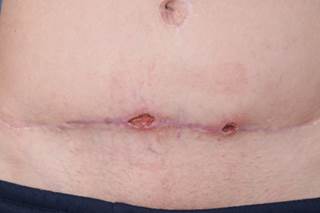
Omadacycline is noninferior to moxifloxacin for community-acquired bacterial pneumonia and noninferior to linezolid for acute bacterial skin infections.
HealthDay News — Omadacycline is noninferior to moxifloxacin for community-acquired bacterial pneumonia and noninferior to linezolid for acute bacterial skin infections, according to two studies published in the Feb. 7 issue of the New England Journal of Medicine.
Roman Stets, M.D., Ph.D., from the City Clinical Hospital in Zaporizhzhia, Ukraine, and colleagues randomly assigned adults with community-acquired bacterial pneumonia to receive omadacycline (386 patients) or moxifloxacin (388 patients), with a total treatment duration of seven to 14 days. The researchers found that omadacycline was noninferior to moxifloxacin for early clinical response (81.1 and 82.7 percent, respectively; difference, −1.6 percentage points; 95 percent confidence interval, −7.1 to 3.8). Omadacycline was also noninferior for the posttreatment evaluation rates of investigator-assessed clinical response (87.6 and 85.1 percent, respectively; difference, 2.5 percentage points; 95 percent confidence interval, −2.4 to 7.4).
William O’Riordan, M.D., from eStudySite in San Diego, and colleagues randomly assigned adults with acute bacterial skin and skin-structure infections to omadacycline (316 patients) or linezolid (311 patients), with total treatment duration of seven to 14 days. The researchers found that omadacycline was noninferior to linezolid in the modified intention-to-treat analysis with respect to early clinical response (84.8 and 85.5 percent, respectively; difference, −0.7 percentage points; 95 percent confidence interval, −6.3 to 4.9). With respect to investigator-assessed clinical response at the posttreatment evaluation, omadacycline was also noninferior to linezolid (86.1 and 83.6 percent, respectively; difference, 2.5 percentage points; 95 percent confidence interval, −3.2 to 8.2).
“Well designed clinical trials of omadacycline for the treatment of infections caused by multiple-drug-resistant gram-negative pathogens are needed to determine its real value as an antibacterial agent,” write the authors of an accompanying editorial.
Both studies were funded by Paratek, the manufacturer of omadacycline.
Abstract/Full Text – Stets (subscription or payment may be required)
Abstract/Full Text – O’Riordan (subscription or payment may be required)
Editorial (subscription or payment may be required)